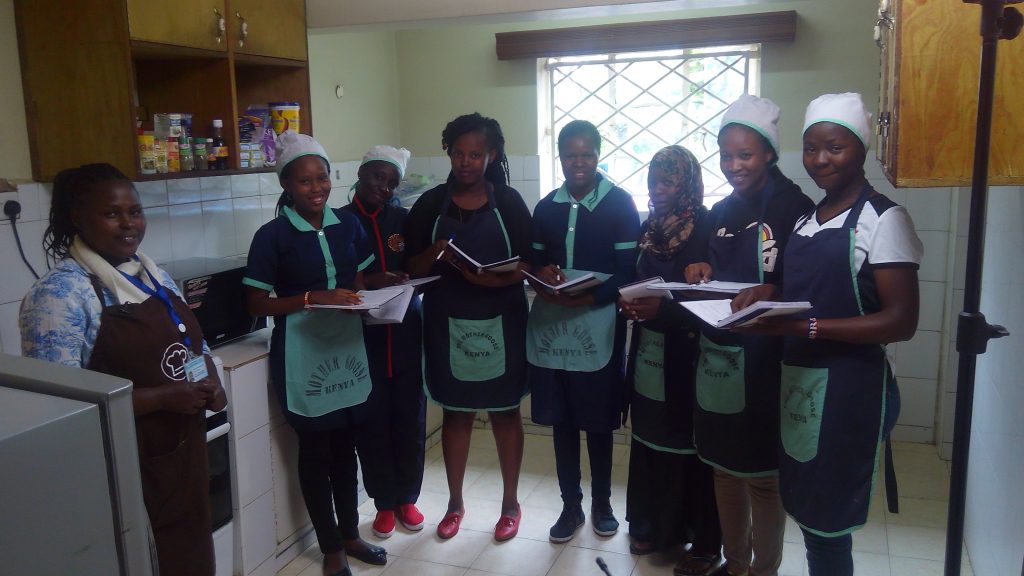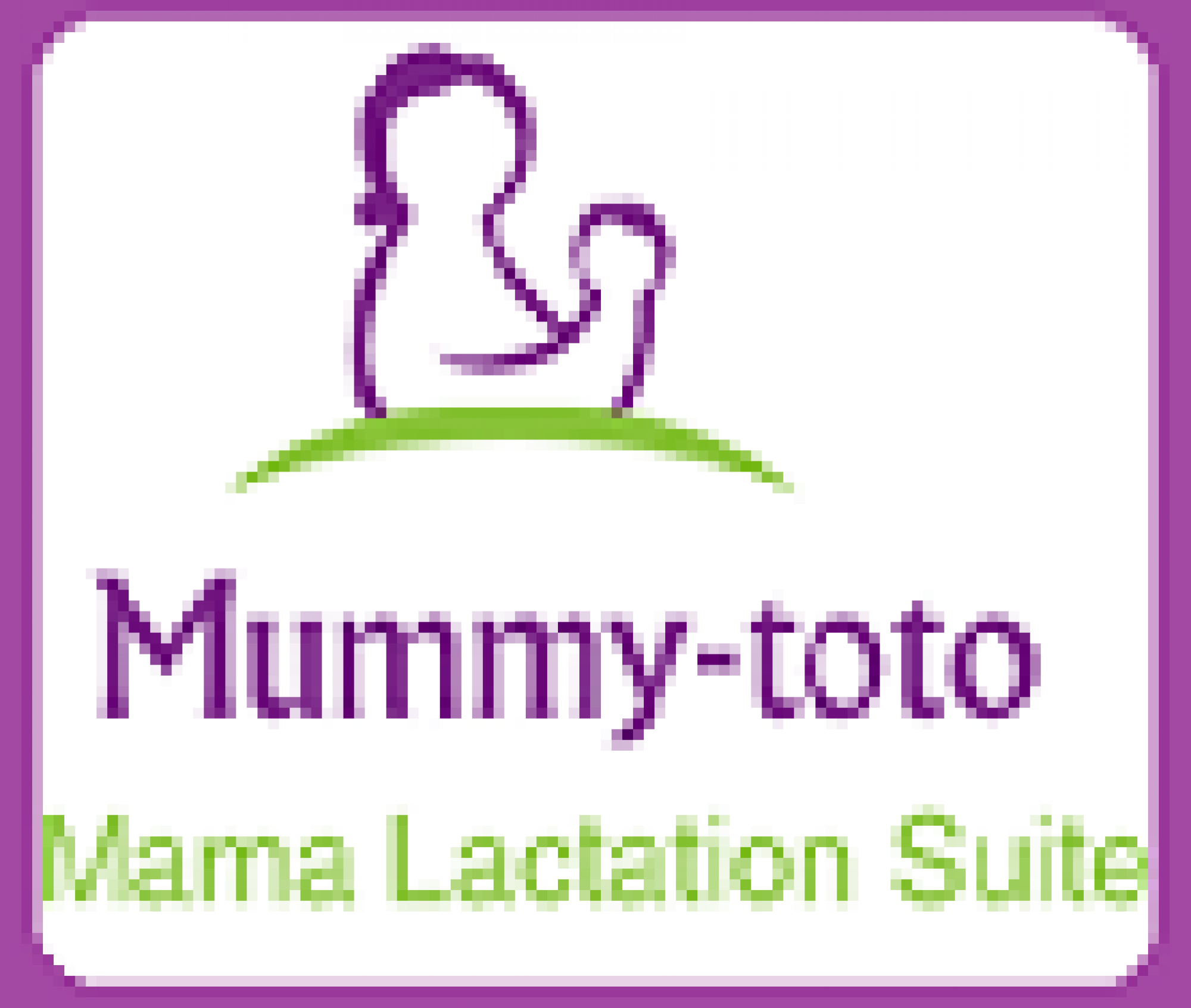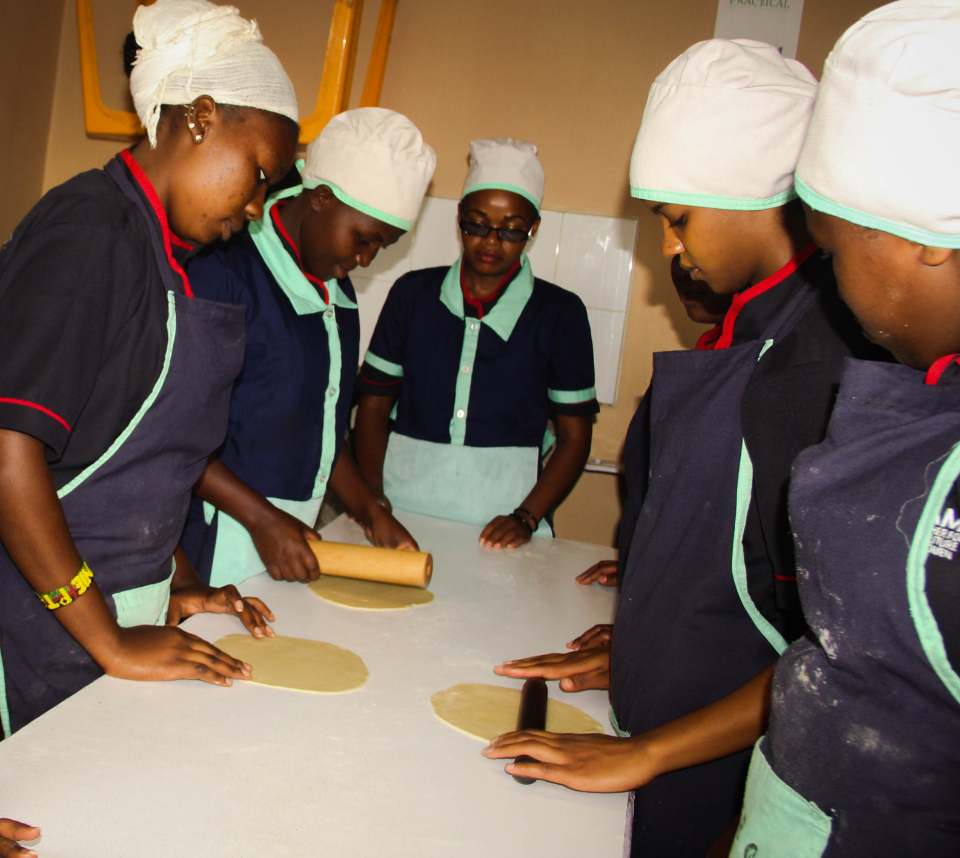EMPOWER WOMEN TO REDUCE POVERTY AND HIV INFECTION
Giving Skills Training and Job Placement to unemployed to Adolescent Girls and Young Women living in poor urban and rural settlement to reduce poverty among them, which is on of the main driving factor that lead some of poor young women to engage in sexual activity for gain that pose them to put them on high risk of contracting HIV.
![]()
Statement of Need
Lack of employment has greatly contributed towards girls and women living in urban informal settlements and rural areas engaging in transactional sex and contracting HIV. Anecdotal evidence and several qualitative studies suggest that transactional sex, which is defined as the exchange of gifts or money for sex, is common among women in urban informal settlements throughout Kenya. In situations of transactional sex, women may be less able to decide the timing and conditions of sex. Women who have little negotiating power with their partners to insist on use of condoms experience a higher risk of becoming pregnant and contracting sexually transmitted infections (STIs), including HIV/AIDS.
Tough economic circumstances and cyclic poverty that characterizes these informal settlements has also compounded the problem. Prevailing patriarchal systems and social norms in these settlements further make girls and women economically disadvantaged compared to males.
The Mother Goose Kenya presents a groundbreaking innovative solution to the highlighted problem through training and job placements of women aged 19 – 35 years, which target girls and young women and remain vulnerable. The proposed intervention revolves around optimizing on the current unmet high demand for skilled and professional house attendants, cleaners, tea girls, office assistants in Kenya. Mother Goose will systematically identify and recruit women (19 – 35 years) from urban and informal settlements by appropriately leveraging on our experience in similar training and job placement.
Recruited women will then receive a series of job trainings and mentorship skills, health education including HIV prevention, family planning, sexually transmitted infections, sexual and reproductive health, basic training on hygiene and sanitation, and financial literacy training.
To conduct the trainings, Mother Goose will engage its in-house staff as well as external consultants.
Following the training, Mother Goose will place the women with employers. We will ensure that every graduate is paid, at the very least, the minimum wage (as established by the Ministry of Labour) and enrolls with National Hospital Insurance Fund (NHIF) and the National Social Security Fund (NSSF).
Key challenges employers encounter with domestic worker
- Poor time management (14%)
- Low standard work (13%)
- Leaving without notice (13%)
- Ignorance (11%)
- Lack of basic skills (10%)
- Theft (10%)
What these imply is that domestic workers lack professionalism; therefore, they may leave without notice, offer below standard services and are ignorant of what is required of them. Thus, possibilities of turning domestic work into an enterprise of choice should consider ways of instilling professional work ethics in the workers. These include but are not limited to signing and respecting provisions of work, contracts include notice of termination of contract, high standard services as well as acquiring skills in domestic work.
It is thus clear that professionalizing the industry through training, placement, mentorship and supervision will greatly go a long way in ensuring that the industry absorbs many young women as professional domestic workers earning the minimum set salary of kshs 12,926.55). Professionalizing the industry will ensure that employment contracts are signed as per the country labor laws thus safeguarding the interests of all parties involved. It will also ensure that the employees meet the statutory requirements such as NHIF and NSSF remittances
Current status of HIV/AIDs among poor women in Kenya
Kenya is ranked among the countries with high HIV/AIDS and infection rates in Africa. The following are facts about the HIV/AIDS prevalence in Kenya:
- According to The National Aids Control 46% of new infections are among the young people and teenagers of whom a whopping 70% are Adolescents Girls and Young Women (AGYWs)
- AIDS is the leading cause of deaths and illness among adolescents and young people in Kenya: 9,270 young people died of AIDS in Kenya in 2014.
- Nearly one in three persons newly infected with HIV are teenagers or youths
Nannies/House-helps situation in Kenya
Due to the dearth of employment opportunities, the high birthrate, and the long hours often worked by those with jobs, it is usual for most urban Kenyans to have a domestic worker, often a young girl, sometimes a family member, who is brought into town from the rural areas. She will be responsible for running the home, cooking the supper, and caring for the children.
More affluent households may also have an ayah, who is responsible for caring for the children (but who may cook, iron, and clean as well), and an askari, who is essentially a security guard, and who may be shared among a number of houses in a compound.
Indeed, the domestic industry in Kenya has the potential of employing over 6 million youths if properly professionalized
House Helps in Kenya – Upper and Middle-Class Households
The upper echelons of Kenyan society (and the middle class is growing fast) may also have a cook, a gardener, and a driver. This situation is replicated in Asian and white households.
Most house helps in Kenya “live in,” that is, they are mostly accommodated in the host’s house or are provided with a staff quarters which may include furniture, bedding, water, electricity, and so on, in addition to their wages. The domestic worker wages are often very low (averaging approximately Ksh 5,500 per month) which is way below the minimum allowable salary for a professionally trained domestic worker.
There are many domestic workers in the country, spread out mostly in the cities and urban centers. A considerable percentage of adult domestic workers are young with 49 % falling between ages 18-25 and 52 % had attained primary (basic) level of education and missed the opportunity to attain higher levels due to financial difficulties. Many of them still yearn for a chance to continue with their education to complete the primary, secondary and tertiary cycles. Further, a high percentage (86%) would like to go for professional training and the majority of these (59%) would like professional training in domestic work. The study therefore, concludes that if properly regulated, professional training in domestic work will attract many young women as some already appreciate it.
The Objectives of this Project
- To train more than 2000 targeted women from informal settlements in urban and rural Kenya on domestic work, hospitality, cleaning, office work and other related sectors.
- Ensure all the girls finish their training, sit for an internal exam and graduate.
- To place all the trained women into employment as professional nannies/ house-helps, tea girls or cleaners in homes and offices.
- Ensure that the girls get good working conditions, a decent salary, with a starting monthly salary whose minimum will be the equivalent of the current minimum wage (Kshs 12,926.55 in Nairobi).
- Ensure that all the working trained Girls are registered and are paying the monthly NHIF and NSSF contributions.
- Educate and support the working women on financial matters and motivate assist them to form savings groups.
- Through success of the program, reduce the risks of HIV infection.
Scope of Work to achieve the Objectives
To achieve the expected results, we have divided the program into three main result areas.
- Result Area 1 – Recruit, train 2000 women and provide them with employment.
- Result Area 2 – To Promote healthy living by enrolling the working women into National Health Insurance Fund NHIF and inform them on HIV prevention and reproductive health
- Result Area 3 – To ensure that the working women join the National Social Security Fund (NSSF) for the old age pension and also do monthly savings with the bank as well as join community organized savings scheme for financial inclusion and sustainability.

Result Area 1 – Recruit, train 2,000 women and provide them with employment
1. Recruit and vetting.
We shall vet and recruit vulnerable young women from the informal settlements and poor rural homesteads where poverty levels are very high. Recruitment and vetting will involve local administration, County government, religious leaders and opinion leaders. Recruitment will involve pre-screening, security checks, referencing and accessing the girls’ vulnerability
2. To conduct an integrated one-month training
In the one-month training, we will use our established nanny curriculum which will equip the women with various skills that will see them get jobs either as professional childcare givers, house-helps, office cleaners, tea girls or waiters in restaurants. During the training, we will offer full boarding accommodation arrangements for 60 women. After the training, the women will get job placements and will live with the employers as live-in domestic workers or secure their own house and work as live-out workers.
Conduct job placement of the trained women
The Mother Goose Nanny Agency maintains a detailed personal profile of trained nannies and house-helps. The profile is used for the job search and placements. Our Job placement process ensures that the employer gets a worker that fit his/her needs and also that the workers gets a decent job and with good working conditions. For the Job placement, The Mother Goose will;
- manage and offer continuous support and mentorship to the women during their working life.
- ensure that they earn at least the government recommended minimum salary which is currently set at Kshs 12, 926.55 as contained in the The Regulation of Wages (GENERAL) (AMENDMENT) Order, 2017. However, we always strive to push employers to pay more than the recommended minimum.
- receive the monthly salary payment on behalf of the employed women, deduct the NHIF and pay the monthly net salary through their bank accounts.
- ensure that our placed workers enjoy good working conditions, without long working hours and a weekend day off plus yearly paid leave and sick leave.
- in the event of a breach of contract by the employer or an infringement on the workers’ rights, we endeavor to assist the women with advice on labour laws, negotiation and in a worst-case scenario, we link the women with an advocate.
- maintain profiles and performance records of all the workers we have trained and placed.
Result Area 2 – Promote HIV prevention and reproductive health among women
Research has shown that women earning a decent wage are less likely to engage in transactional sex. They are also able to make better choices as regards sexual partners. Ensuring that our students get decent jobs promotes HIV prevention.
To promote reproductive health, we will ensure all the women we train enroll with the National Hospital Insurance Fund (NHIF). Once enrolled, they can access the NHIF’s Linda Mama program in addition to other health services run offered by the NHIF.
Prior to commencement of training we will make sure that every woman is registered under the NHIF and NSSF. We will procure the NHIF registration forms from the NHIF offices and hand them out to every student during admission day. The women will fill in all the NHIF forms and we will then submit the same to NHIF offices.
After the first month of working, all the working women will be expected to have received their NHIF cards. The Mother Goose Nanny Agency will deduct the NHIF contributions from the salaries remitted by the Employers and make the NHIF payments on behalf of the Girls. A clear record of monthly NHIF payment of each working Girl will be maintained.
Result Area 3 – Enhance savings, financial inclusion and sustainability
The Mother Goose Nanny Agency maintains an employee database system. We will maintain a record of all salary earned, deductions, saving, advances and so forth, etc. We already have an internal savings scheme that is open to all employed domestic workers. We will introduce the savings scheme to all the trained women and encourage them save at least ten percent of their monthly income. Additionally, we will ensure all working women register with NSSF and ensure regular monthly contributions are made to the scheme. By putting aside money via NSSF, they will have secured their financial stability upon retiring. We shall also organize periodic seminars on financial literacy to educate all our graduates on investment vehicles such as M-Akiba Government bond, shares, fixed accounts and the like. We will also assist our graduates to form savings groups (chamas).
The Budget for Training and Job Placement
The following is a representative sample summary budget of training and employing 60 women per month.
| Item cost | Description of item | Monthly costs in per girl | Total cost for 60 girls per month | ||
| kshs | kshs | ||||
| 1 | Admission costs | Writing materials, working clothes, head gear, apron, shoes. | 5,425 | 325,500 | |
| 2 | Training fees | Theory classes, practical training, field work, examination, certificate | 12,900 | 774,000 | |
| 3 | Accommodation for 30 days with all meals | Rent, utilities, Cost of food, security, personal hygiene expenses | 14,115 | 846,900 | |
| 4 | Job placement and supervision for 6 months | Job Advertisement costs, placement costs, data management, job support etc. | 7,550 | 453,000 | |
| Total costs | 39,990 | 2,399,600 | |||

